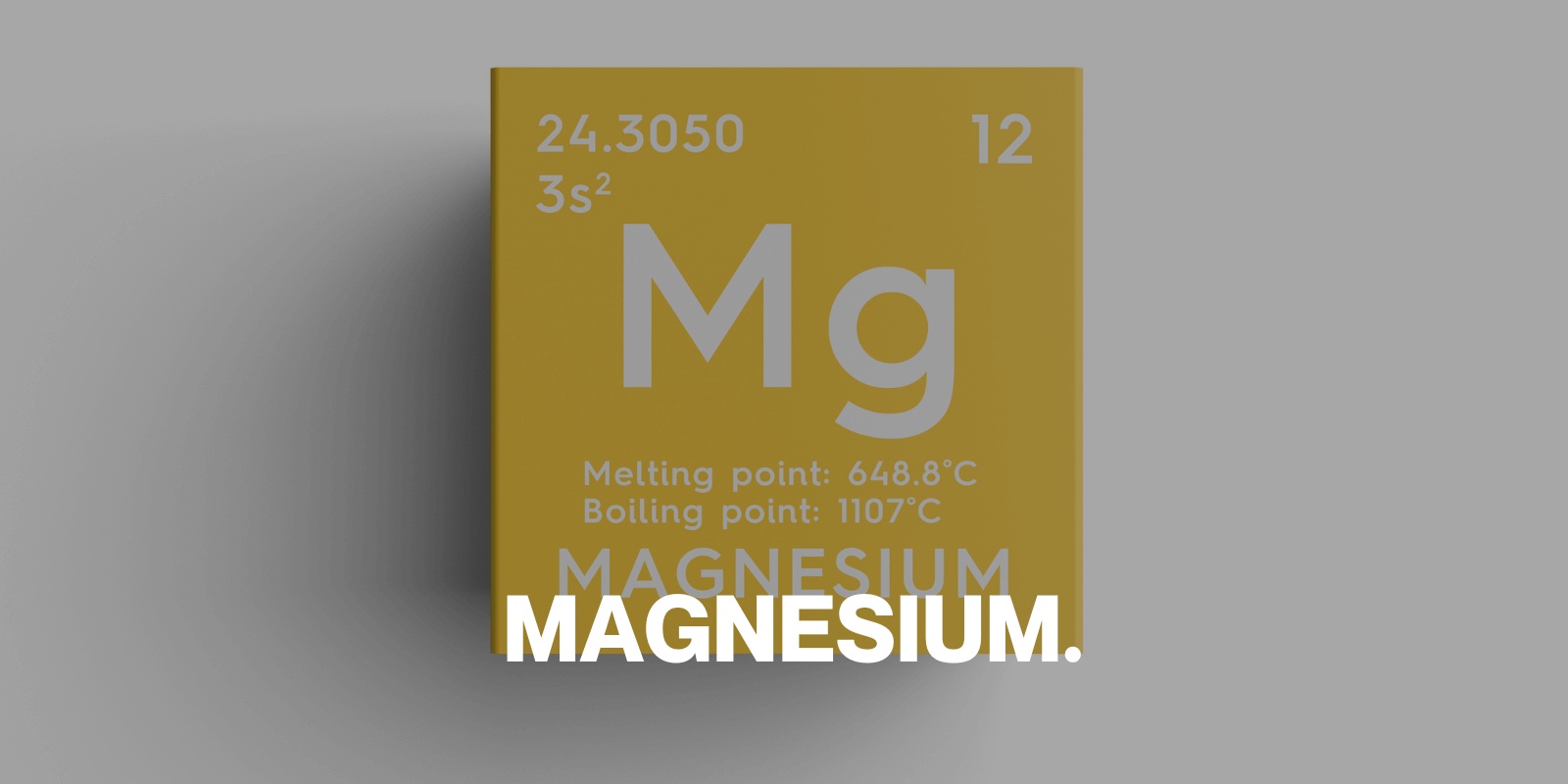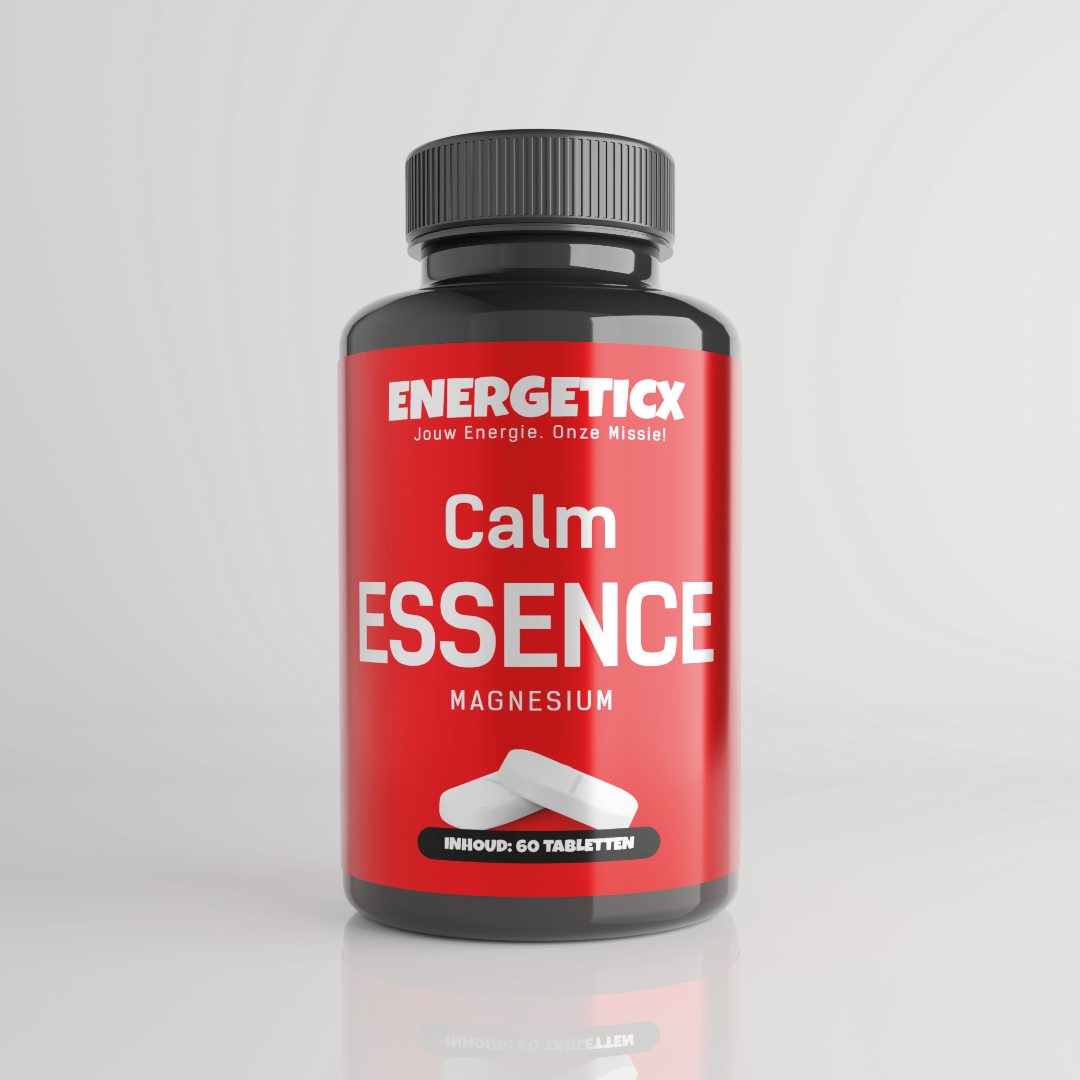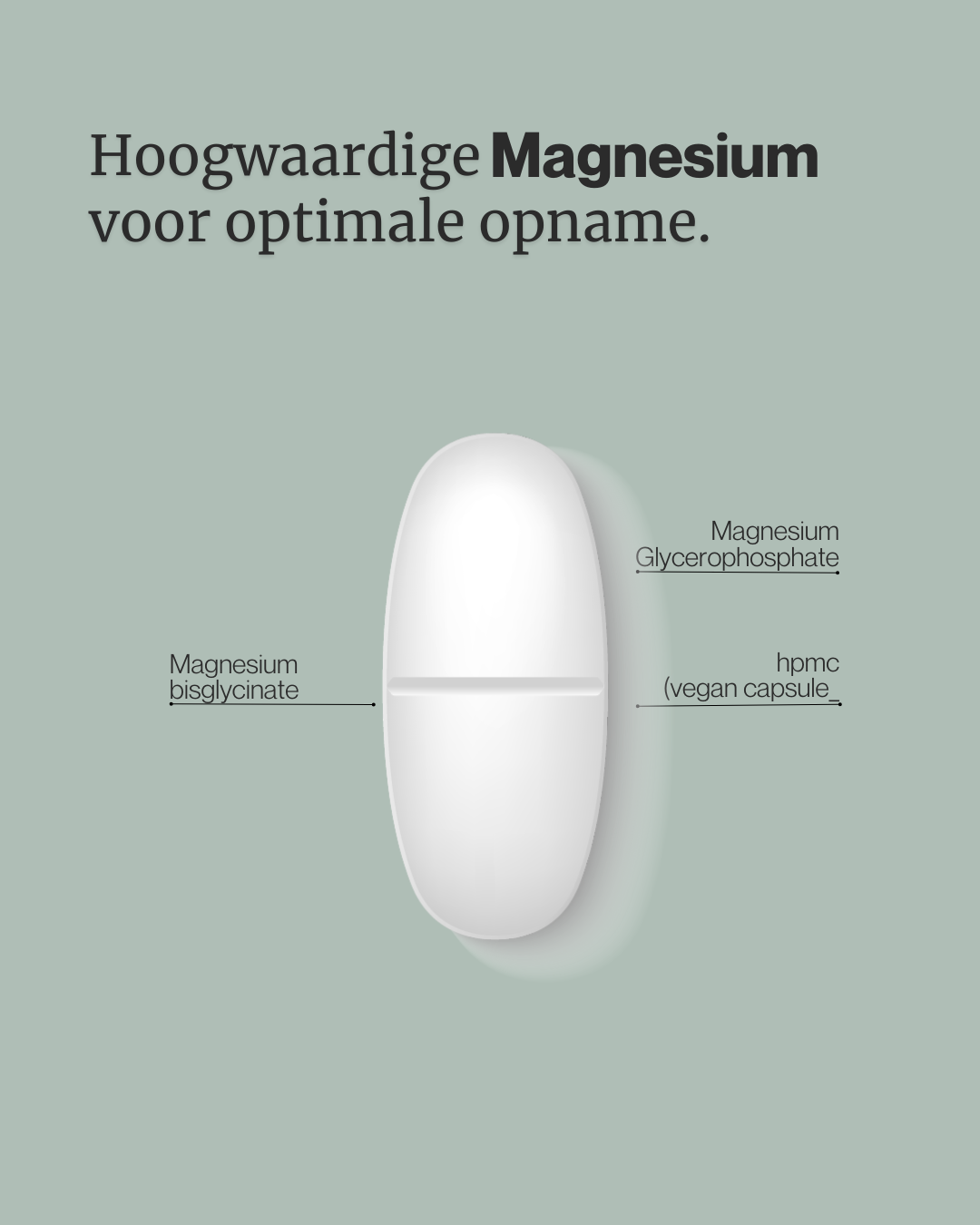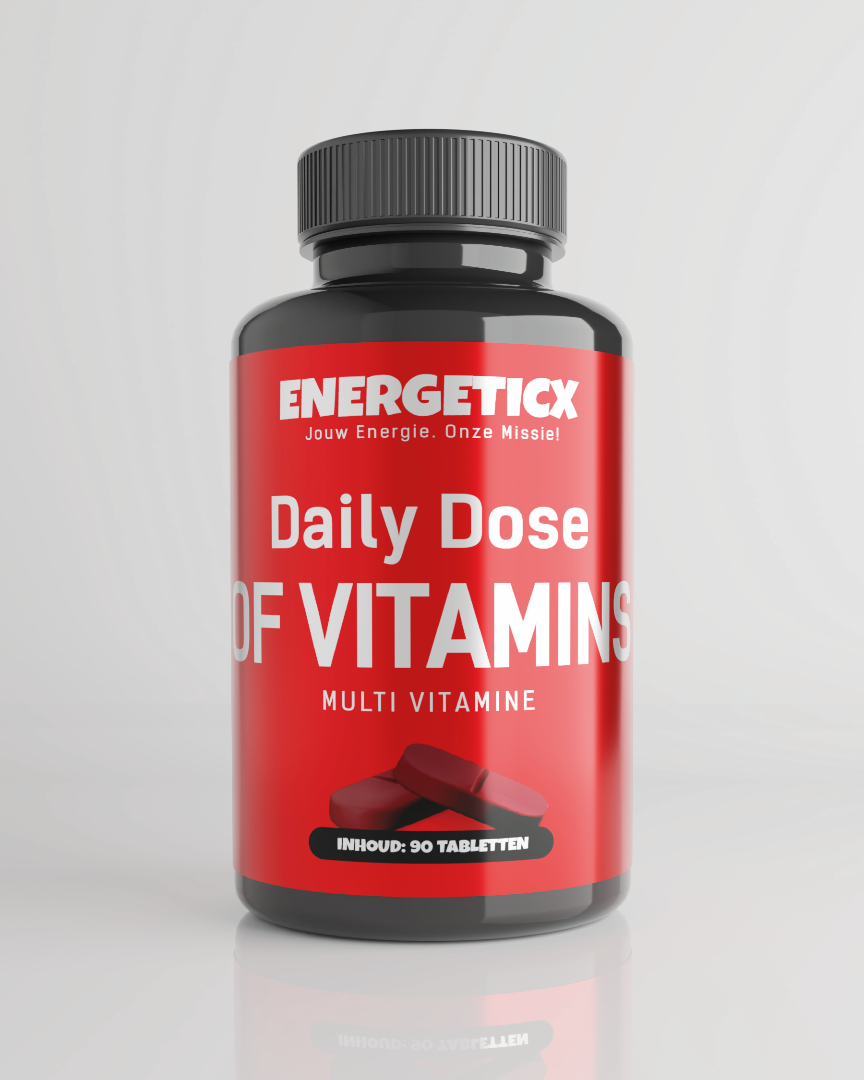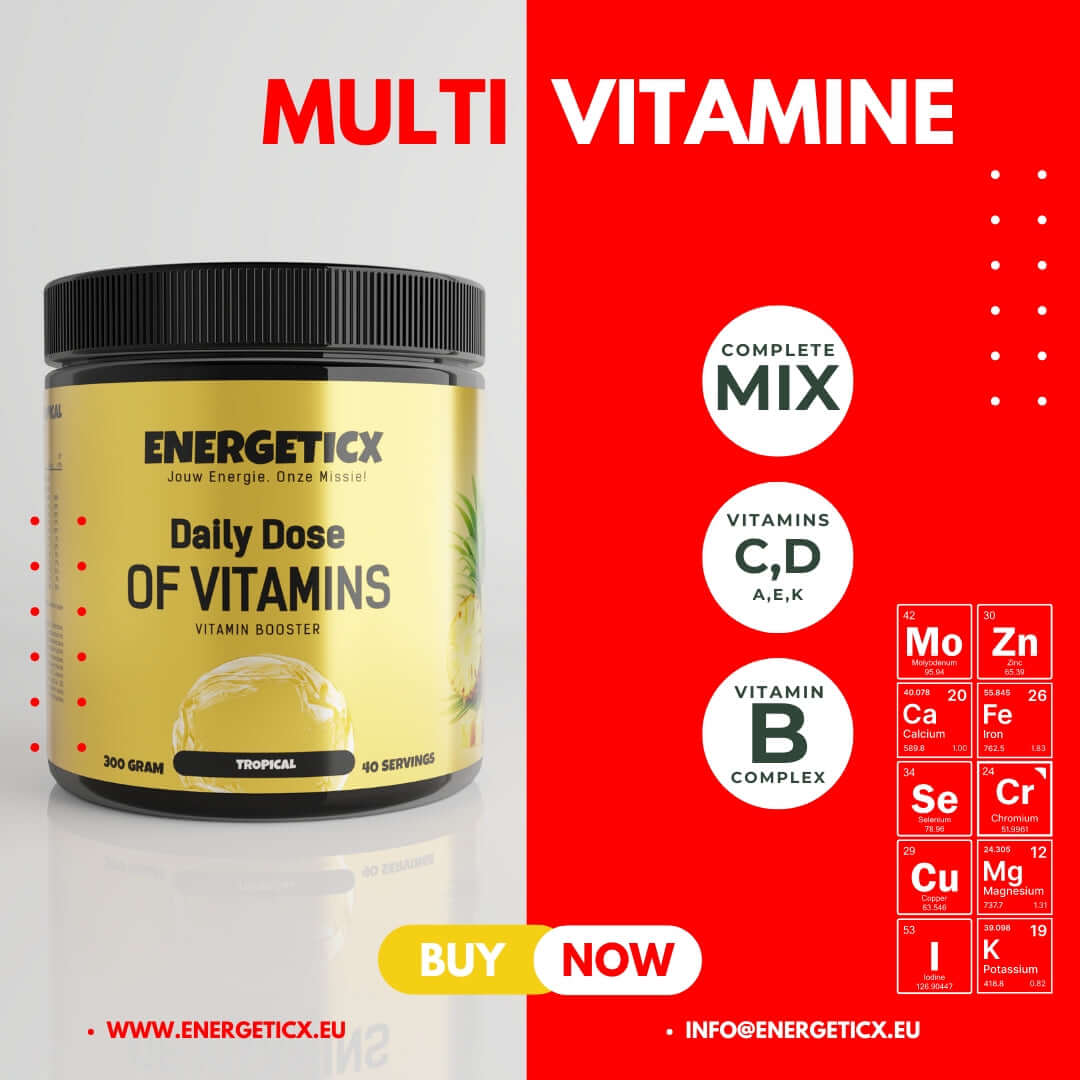WHAT ARE
Minerals?
Minerals are essential nutrients that are important for many functions in the body, such as the maintenance of bones, teeth, muscles and the nervous system. The body cannot produce minerals itself, which is why a varied and healthy diet is important to get enough minerals. Minerals are absorbed by plants and animals from nature, after which they end up in our body via our food.
The Importance of Minerals
Minerals support good health and contribute to growth and development. They do not provide energy themselves, but they do play a role in energy metabolism. About 4% of our body consists of minerals that we obtain from food. Certain minerals are absorbed more efficiently in combination with other nutrients, such as iron in the presence of vitamin C.
Why Magnesium?
Magnesium is an important mineral that plays a role in many bodily processes. It supports, among other things:
- Muscle and nerve function : Helps relax muscles and regulate nerve impulses.
- Energy production : Plays a role in the production of ATP, an important energy source for the body.
- Bone health : Supports calcium absorption and contributes to healthy bones and teeth.
- Heart Health : Helps regulate heart rate and contributes to normal blood pressure.
- Immune System : Supports the body's immune system.
Benefits of Magnesium Supplements
Supplementation in case of deficiency : For people with a magnesium deficiency, supplementation can provide support, especially for symptoms such as fatigue, muscle cramps and reduced resistance.
Muscle recovery : Magnesium is useful for athletes who train intensively and need recovery support.
Support for sleep quality : Magnesium can help relax the nervous system and contribute to a good night's sleep.
Healthy digestion : Magnesium is involved in digestion and can support normal bowel function.
Types of Magnesium Supplements at Energeticx
Magnesium Bisglycinate
Properties : Magnesium bound to the amino acid glycine.
Benefits : Easily absorbed, gentle on the stomach and suitable for people with a sensitive stomach.
Magnesium Citrate
Properties : Magnesium bound to citric acid.
Benefits : Supports digestion and may help maintain regular bowel function.
Magnesium Oxide
Properties : A mineral form of magnesium.
Benefits : Contains a high concentration of magnesium per dose, but is less absorbable than other forms.
Magnesium Chloride
Properties : Magnesium bound to chloride.
Benefits : Supports the production of stomach acid and contributes to healthy skin.
How to Choose the Best Magnesium Supplement?
Depending on the needs :
Digestive support
Magnesium citrate may be a good option.
Muscle recovery and general support : A combination of different forms of magnesium can be effective.
Check ingredients
Avoid unnecessary additives and artificial flavors.
Choose supplements with high bioavailability for optimal absorption.
Pay attention to the dosage
The recommended daily amount of magnesium for adults is around 300-400 mg.
Take your personal needs into account and seek advice from a nutritionist if necessary.
TIPS FOR THE
Use of Magnesium Supplements
1. Dosage
Follow the directions on the package and preferably take 300-400 mg per day.
2. Timing
It is best to take magnesium supplements in the evening to ensure a good night's sleep.
3. With food
Take magnesium with a meal for optimal absorption.
4. Hydration
Drink enough water to support the absorption of magnesium in the body.
FAQ
Frequently Asked Questions about Vegan Protein
What is a magnesium deficiency and what are the symptoms?
A magnesium deficiency can lead to symptoms such as muscle cramps, fatigue, irritation, heart rhythm disorders and a weakened immune system. It is important to address a deficiency in time by increasing your intake through food or supplements.
What foods contain magnesium?
Magnesium is found in foods such as whole grain bread, nuts, seeds, green leafy vegetables, legumes, and dairy products. Supplements can be a convenient way to meet your daily magnesium needs.
How much magnesium do I need per day?
The recommended daily amount of magnesium varies by age and gender, but is usually between 300-400 mg per day for adults. It is important to know your personal needs and consult a nutritionist if necessary.
Is magnesium bisglycinate better than magnesium citrate?
Both forms have their advantages. Magnesium bisglycinate is highly absorbable and gentle on the stomach, while magnesium citrate is also highly absorbable and offers additional digestive benefits. The choice depends on your specific needs and any sensitivities.

From Citrate to Taurate: The Diverse World of Magnesium Supplements
Magnesium is an essential mineral that plays a role in several bodily functions, including muscle contraction, nerve conduction, and bone health. Although magnesium can be obtained from food, some ...

